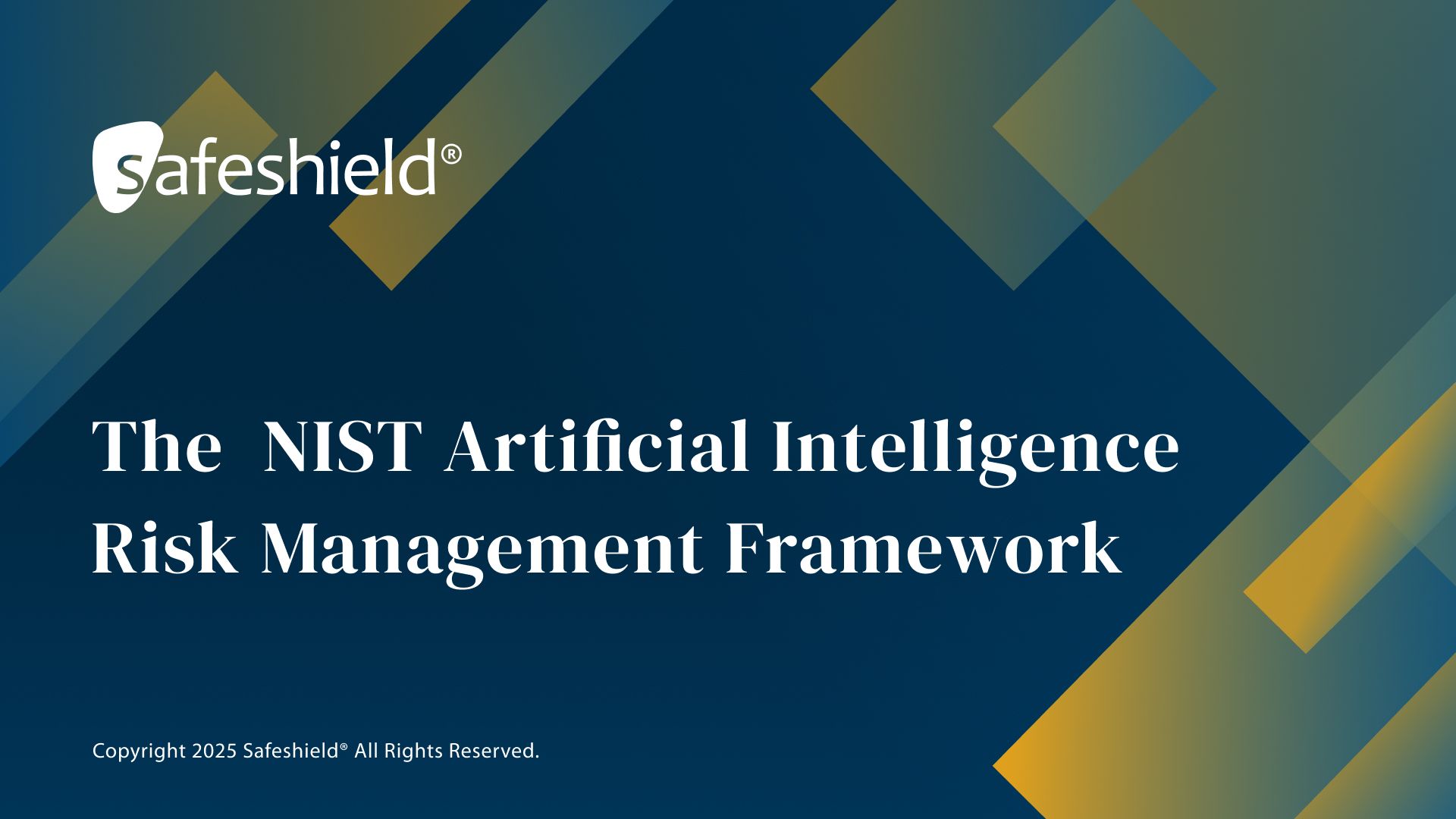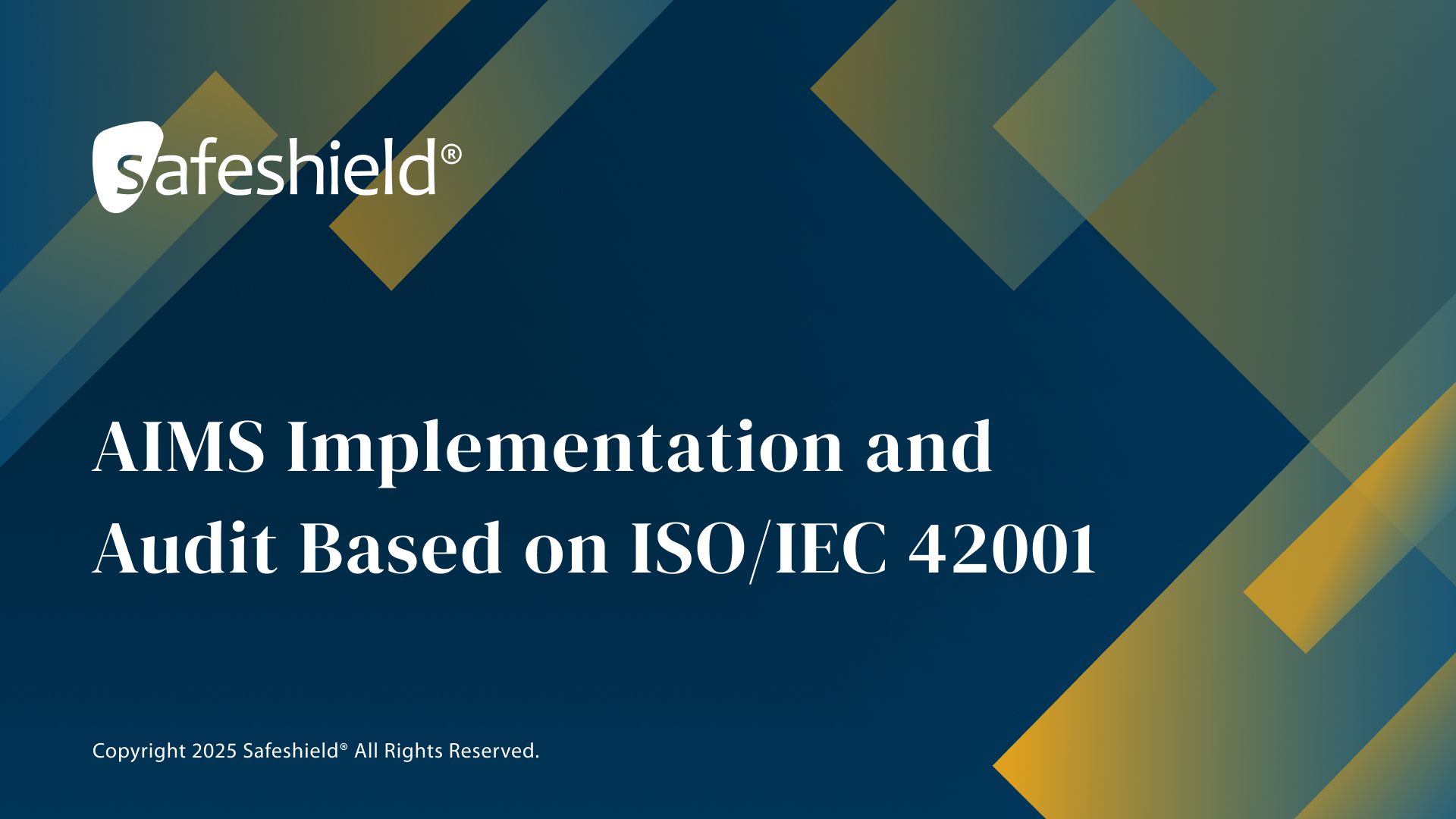Auditing AI Management Systems: What ISO/IEC 42001 Lead Auditors Need to Know
October 7, 2025
Artificial Intelligence (AI) has quickly become a driving force behind modern business. Banks use it to detect fraud in real-time. Hospitals rely on AI to improve diagnostic accuracy. Retailers apply machine learning to personalize customer experiences.
But as powerful as AI is, it also introduces new risks that businesses cannot afford to ignore. What happens when an AI tool denies a loan based on biased training data? Or when an autonomous system makes a safety-critical error? The consequences can be reputational, financial, and even legal.
This is why international standards are emerging to ensure that AI is used responsibly and transparently. Among these, ISO/IEC 42001 is the first global standard dedicated to Artificial Intelligence Management Systems (AIMS). And at the centre of ensuring businesses comply with this new framework are the Auditors who verify, assess, and guide businesses through the complexities of AI governance.
In this blog, we’ll explore why auditing AI management systems requires a specialized approach, what ISO/IEC 42001 entails, and, most importantly, what Auditors need to know to succeed in this emerging and in-demand profession.
Why AI Needs Specialized Auditing
Traditional IT audits typically focus on areas like access control, data protection, or compliance with security standards such as ISO 27001. While these remain important, AI introduces new and unique challenges:
- Bias and fairness: Imagine an AI-powered recruitment system trained on historical hiring data. If that data reflects gender or ethnic bias, the AI may unknowingly replicate discrimination at scale. An auditor must be able to recognize these risks and evaluate whether organizations have safeguards in place.
- Transparency: Many AI models (particularly deep learning models) are considered “black boxes.” Even developers may struggle to explain how an output was generated. For auditors, this lack of transparency is a serious concern, since accountability requires explainability.
- Security and privacy: AI systems often process massive datasets, including sensitive personal information. Weaknesses in data handling can lead to breaches, violating laws such as GDPR. Auditors must ensure organizations have robust privacy and security measures aligned with AI use.
- Dynamic behaviour: Unlike traditional systems, AI models learn and adapt. That means risks may evolve over time, and an audit cannot be a one-off check, but something that requires ongoing governance.
Without specialized oversight, organizations risk deploying AI that is both ineffective and harmful. This is why AI requires its own management system standard and its own auditing approach.
Understanding ISO/IEC 42001
ISO/IEC 42001 is the world’s first international standard created specifically for Artificial Intelligence Management Systems (AIMS). Published in 2023, it provides a framework for organizations to implement, operate, maintain, and continually improve responsible AI practices.
In practical terms, ISO/IEC 42001 helps organizations:
- Establish governance structures that assign accountability for AI systems.
- Define and manage AI risks throughout the lifecycle, from design to decommissioning.
- Ensure transparency and explainability in decision-making.
- Integrate AI governance with other existing management systems (such as ISO/IEC 27001 for information security and ISO 9001 for quality).
For example, a financial services firm adopting AI for loan approvals could use ISO/IEC 42001 to ensure its models are fair, explainable, and compliant with regulations. A healthcare provider might use the framework to ensure that diagnostic AI tools are safe, accurate, and ethically deployed.
In short, ISO/IEC 42001 provides both a barrier against risk and a signal of trustworthiness to customers, regulators, and partners.
The Role of Lead Auditor in AIMS
Once a business decides to implement ISO/IEC 42001, it needs professionals who can verify compliance and ensure continuous improvement. This is where the Lead Auditor comes in.
A Lead Auditor is an independent expert that ensures organizations are truly living up to the principles of responsible AI. Their role includes:
- Planning and leading audits: Designing the audit program, defining scope, and coordinating the audit team.
- Assessing governance processes: Evaluating whether the organization has effective risk management and accountability frameworks in place.
- Reviewing AI lifecycle controls: From data acquisition and training to deployment and monitoring, auditors examine whether processes are robust and transparent.
- Reporting findings: Clearly communicating strengths, gaps, and opportunities for improvement.
- Guiding businesses: Offering recommendations that help businesses strengthen compliance and maintain trust.
For businesses, having a qualified Lead Auditor on their team means greater assurance, smoother compliance, and reduced risk exposure.
What ISO/IEC 42001 Lead Auditors Need to Know
To be effective, Lead Auditors need to master a blend of technical knowledge, regulatory awareness, and professional auditing skills.
1. Technical knowledge of AI Systems
a) Understanding different AI models (machine learning, natural language processing, deep learning).
b) Identifying risks such as dataset bias or algorithmic drift.
c) Evaluating whether organizations have monitoring mechanisms to catch errors in real-world use.
Example: An auditor reviewing a retail company’s recommendation engine must ask: Does the system reinforce harmful stereotypes? Is there a mechanism to track and mitigate unintended outcomes?
2. Knowledge of Standards and Frameworks
a)
Deep familiarity with ISO/IEC 42001 requirements.
b)
Awareness of complementary standards like ISO/IEC 27001 (security), ISO 9001 (quality), and ISO/IEC 27701 (privacy).
c)
Understanding how to integrate AI governance into existing management systems.
3. Auditing Skills
a)
Leading audit teams, interviewing stakeholders, and gathering evidence.
b)
Applying risk-based auditing techniques to AI-specific contexts.
c)
Producing audit reports that balance technical accuracy with executive readability.
4. Ethical and Regulatory Awareness
a) Knowledge of current and upcoming laws, such as the EU AI Act, Canada’s AIDA, or U.S. state-level AI regulations.
b)
Ability to evaluate whether AI systems align not just with ISO standards, but also with ethical principles of fairness, accountability, and transparency.
5. Soft Skills
a) Communicating complex AI issues to non-technical executives.
b) Handling resistance from teams that may see audits as obstacles rather than opportunities.
c)
Building trust as a neutral, objective expert.
These competencies set apart an effective AI Lead Auditor from a general IT auditor.
Building a Career as a Lead AI Auditor
As AI adoption accelerates, organizations are under increasing pressure to prove that their systems are safe, fair, and compliant. This creates a growing demand for professionals who can audit AI management systems under ISO/IEC 42001.
For auditors, compliance managers, and IT security professionals, this presents an exciting career opportunity. By becoming a Lead Auditor, you can:
- Position yourself at the cutting edge of governance and compliance.
- Access a global market of organizations implementing AI responsibly.
- Enhance your credibility and earning potential with a globally recognized certification.
Think of it this way: just as ISO 27001 transformed the careers of information security auditors, ISO/IEC 42001 will do the same for AI governance auditors. Those who move early will be seen as pioneers in the field.
How to Get Started: ISO/IEC 42001 Lead Auditor Training
The first step in this journey is formal training. A structured ISO/IEC 42001 Lead Auditor course provides the knowledge and methodology you need to conduct audits with confidence.
Our ISO/IEC 42001 Lead Auditor course
is designed for professionals who want to:
- Gain in-depth knowledge of AI management system requirements.
- Learn how to plan, conduct, and report audits in line with ISO best practices.
- Strengthen both the technical and ethical dimensions of AI governance.
- Study at their own pace while still working toward a globally recognized certification.
Whether you are already an auditor seeking to expand into AI or a professional in IT governance looking to future-proof your career, this course equips you with the skills and credibility to lead in this new space.
Conclusions
AI brings extraordinary opportunities, but that also comes with unprecedented risks. ISO/IEC 42001 provides the framework to manage those risks responsibly, ensuring that AI systems remain fair, transparent, and trustworthy.
Auditors play a central role in this ecosystem. They provide the assurance organizations need to comply with standards, satisfy regulators, and build public trust. For individuals, becoming an ISO/IEC 42001 Lead Auditor is a career move that offers both professional growth and the chance to shape the future of ethical AI.
If you’re ready to take the next step, consider enrolling in our ISO/IEC 42001 Lead Auditor training course. It’s your pathway to mastering AI auditing and becoming a trusted expert in one of today’s most important and fast-growing fields.
Subscribe to our YouTube channel @SafeshieldTraining
to explore free courses on AI governance, risk management, and compliance. It is an excellent way to learn the foundations of responsible AI and understand key principles such as accountability, traceability, explainability, non-discrimination, privacy, and security. It is also a great opportunity to deepen your knowledge and stay informed about emerging frameworks and best practices shaping the future of trustworthy AI.
Share this article





